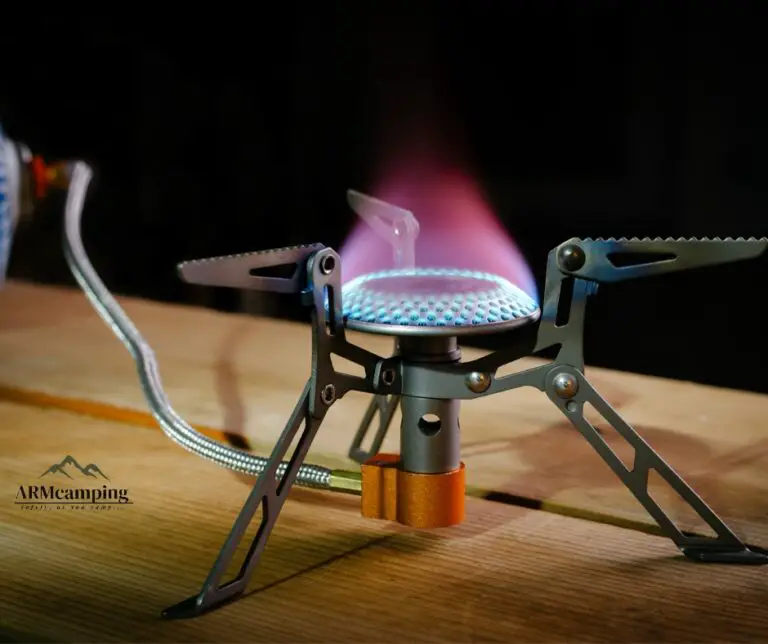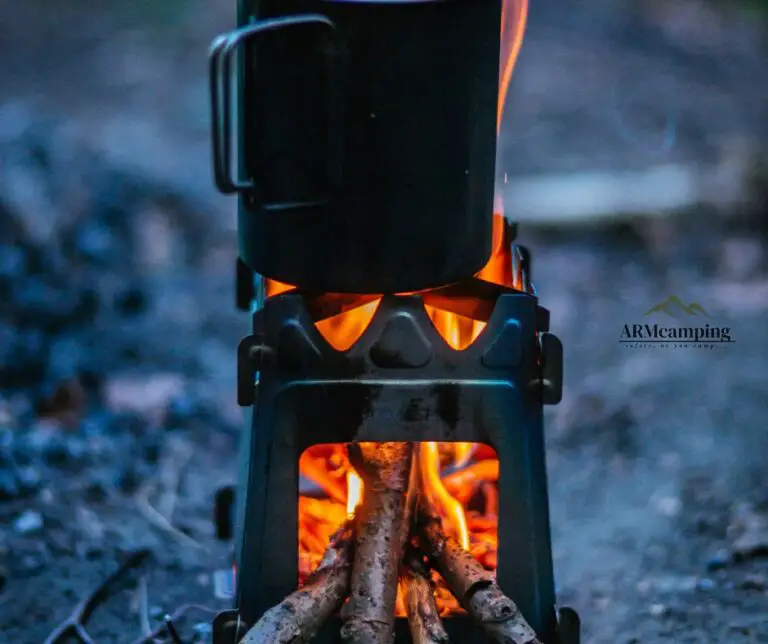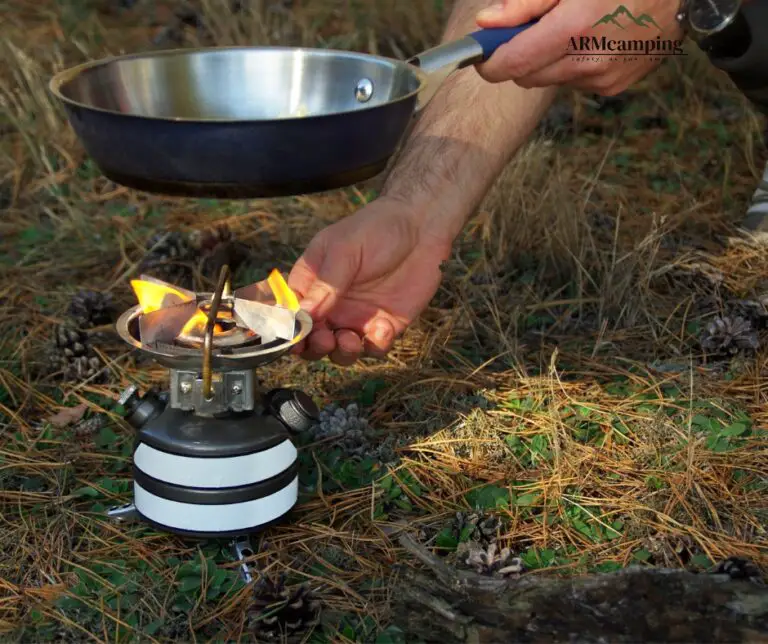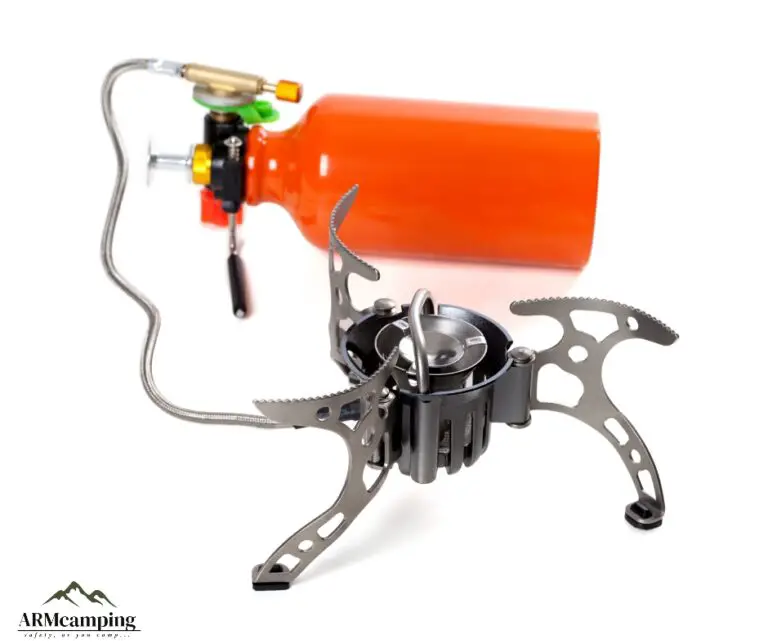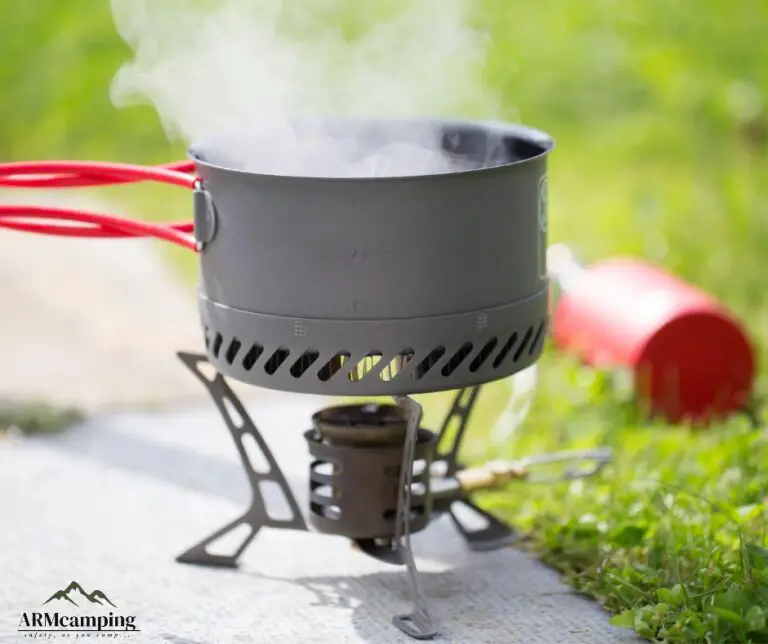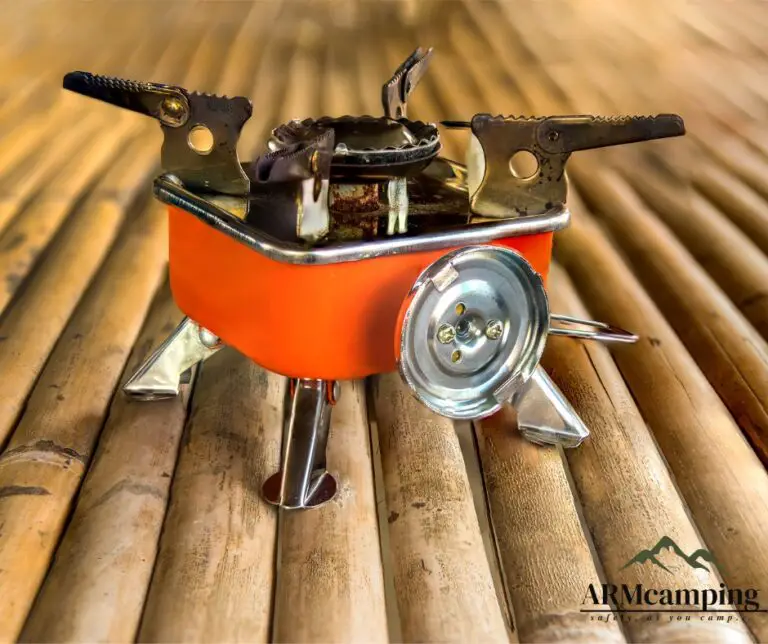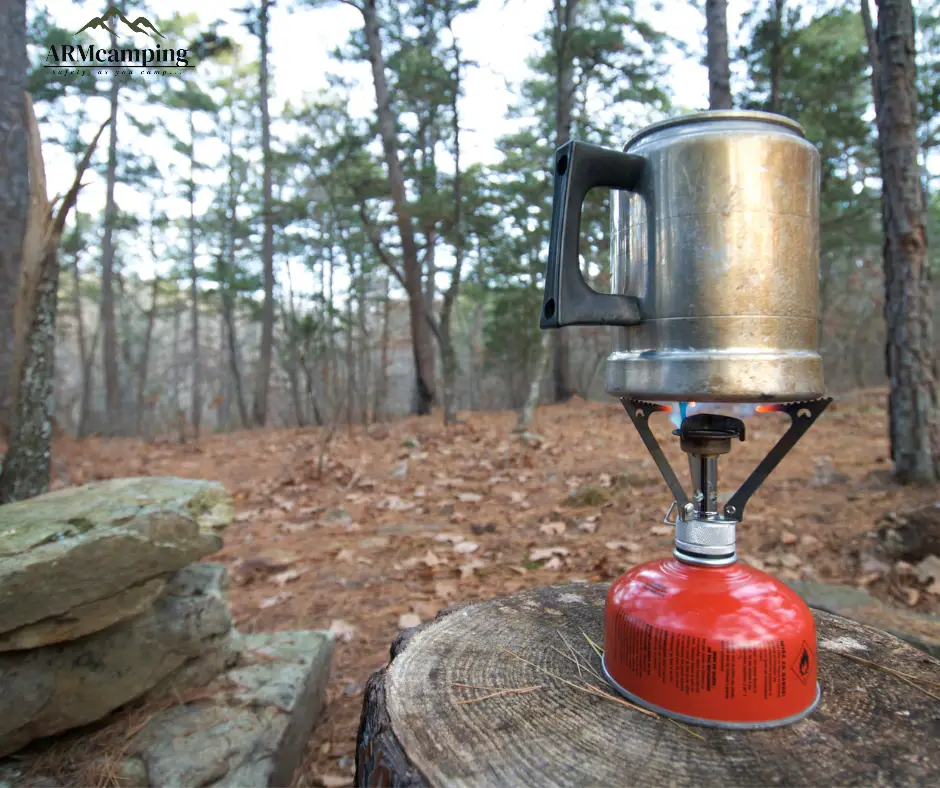
The last thing you want to do is put yourself or your family in danger while enjoying the great outdoors. We all know how good it feels to cook outside in the summer. Just a few minutes of grilling and you can feel a nice wind coming through your place. As nice as it feels, the table may turn when winter comes or it gets uncomfortably cold. This makes people ask; is it safe to have a butane gas camp stove inside?
The main concern when using butane gas camp stoves inside is the fumes they produce, which can be dangerous to your health if not handled correctly. So it’s considered unsafe to use a butane gas camp stove inside. There are lots of accidents that can easily happen while using it inside, so it’s always advised against. There are more reasons why you shouldn’t read on to find out.
Why It’s Not Safe to Have a Butane Gas Camp Stove on Inside
Here are the reasons why you shouldn’t use your butane gas camp stove indoors:
1. Tent fabrics can easily catch fire
Fumes from butane gas are highly flammable and can easily ignite when exposed to an open flame or spark from something like a lighter or cigarette lighter. If these fumes accumulate inside your tent, they could cause serious damage in an extremely short amount of time.
If you want to use your butane gas camp stove inside your tent, make sure that there is no chance of any sparks or flames escaping into the fabric of your tent. The last thing you want is for the material of your tent to catch on fire while you are sleeping.
2. Carbon monoxide is highly dangerous
Carbon monoxide poisoning is another danger that comes with using a butane gas camp stove inside your tent. This chemical makes its way into the air through burning fuel products such as propane and natural gas. When inhaled in high concentrations, carbon monoxide can cause symptoms such as nausea, dizziness, and headaches. However, if left untreated for too long, carbon monoxide poisoning can be fatal.
3. It can reduce oxygen levels
The most obvious danger is that the stove will reduce oxygen levels in your tent. This can lead to suffocation and death. Butane gas stoves also produce carbon monoxide, which is poisonous to humans and animals. Carbon monoxide can depress the nervous system, causing confusion or dizziness, headache, and fatigue.
If you breathe in too much carbon monoxide, it can cause headaches, dizziness, or nausea. It can also make you sleepy, so you stop paying attention to what you’re doing and eventually pass out.
4. You can cause an explosion
Butane canisters contain propane under pressure to vaporize it so that you can easily light your stove. This creates an explosion hazard if the canister is damaged or punctured, which can happen unexpectedly during camping use of your stove.
5. You could injure yourself or others
The hot burner can burn you if you accidentally knock it over while cooking or cleaning up afterward. You might also burn yourself on a hot liquid that spills out of the pot onto your hand when removing it from the flame or taking off the lid for some reason in the mid-cooking process (like adding more ingredients).
How to Safely Use a Butane Gas Camp Stove in a Tent
A butane gas camp stove is a great addition to any camping trip. Butane gas stoves are easy to use, portable, and lightweight. However, many people are unsure of how to safely use a butane gas camp stove inside of a tent. There are several ways that you can safely use it in your tent without risking injury or damage to your tent or other belongings.
The first thing you should do is make sure your tent is properly ventilated before using the stove. Make sure that there is at least one window open on each side of the tent so that fresh air can flow freely into the tent. If there are no windows available, then you should crack open all the doors to allow as much fresh air into the tent as possible.
You should also make sure that there is sufficient ventilation underneath your tent after you have started cooking on the stove. It may be necessary to remove some items from under the tent if they block off too much airflow under the structure of the tent itself.
It’s also important not to turn on any lights inside of your tent while cooking with this type of equipment because it could cause an explosion if any sparks are present within.
Ventilation Requirements
You should always use adequate ventilation when using a butane camping stove in your tent. Ventilation can be achieved by placing an open window or door on each side of the stove and allowing fresh air to circulate through it. You should also make sure there are no flammable objects nearby that could catch fire if exposed to excessive heat from your stove.
If you’re using a propane camping stove instead of a butane model, then you won’t need to worry about any potential safety concerns because propane does not reach dangerously high temperatures outdoors as butane would.
Can You Use a Gas Camp Stove Inside?
Yes, you can use a gas camp stove inside, but you must take precautions to ensure your safety. The first thing to realize is that your stove produces carbon monoxide, which is a poisonous gas that causes headaches, fatigue, dizziness, and nausea. It’s also odorless and colorless, so it’s not easy to detect.
https://armcamping.com/how-to-stay-safe-when-wild-camping-in-the-us/If you have any doubts about the ability of your stove to vent properly, don’t use it inside. If you’re using a butane-powered camp stove indoors, make sure there’s adequate ventilation by opening windows or setting up fans to blow air out of the room. You should also keep an eye on the stove while it’s operating just in case something goes wrong with the venting system.
Final Note
Is it safe to have a butane gas camp stove on the inside? Since it is not an indoor stove, you can use the stove outside on your deck or patio. The reason behind this is the fumes of the butane gas are harmful to anyone in the vicinity and it may be harmful if inhaled in large quantities.

